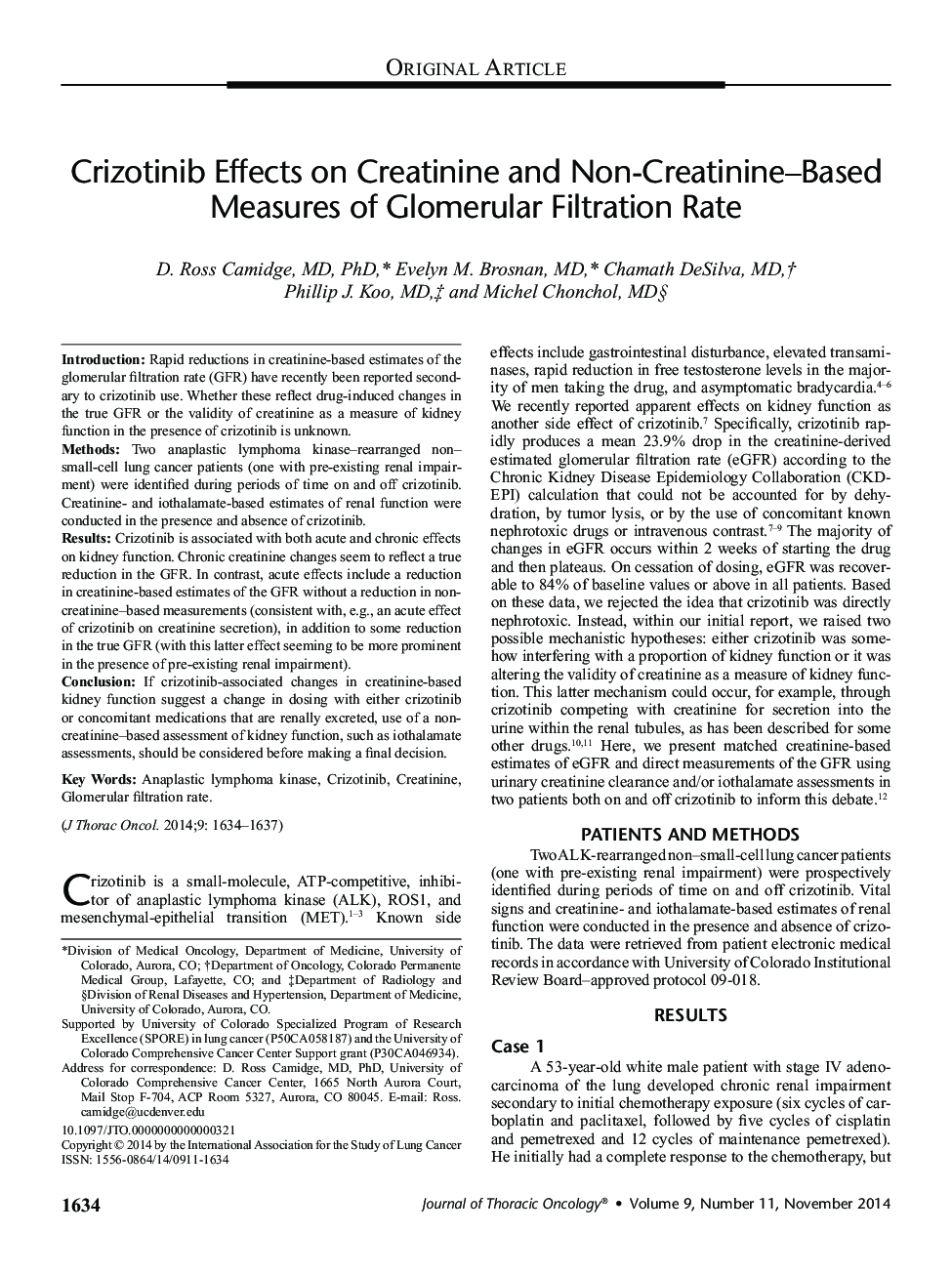| Article ID | Journal | Published Year | Pages | File Type |
|---|---|---|---|---|
| 3989566 | Journal of Thoracic Oncology | 2014 | 4 Pages |
IntroductionRapid reductions in creatinine-based estimates of the glomerular filtration rate (GFR) have recently been reported secondary to crizotinib use. Whether these reflect drug-induced changes in the true GFR or the validity of creatinine as a measure of kidney function in the presence of crizotinib is unknown.MethodsTwo anaplastic lymphoma kinase–rearranged non–small-cell lung cancer patients (one with pre-existing renal impairment) were identified during periods of time on and off crizotinib. Creatinine- and iothalamate-based estimates of renal function were conducted in the presence and absence of crizotinib.ResultsCrizotinib is associated with both acute and chronic effects on kidney function. Chronic creatinine changes seem to reflect a true reduction in the GFR. In contrast, acute effects include a reduction in creatinine-based estimates of the GFR without a reduction in non-creatinine–based measurements (consistent with, e.g., an acute effect of crizotinib on creatinine secretion), in addition to some reduction in the true GFR (with this latter effect seeming to be more prominent in the presence of pre-existing renal impairment).ConclusionIf crizotinib-associated changes in creatinine-based kidney function suggest a change in dosing with either crizotinib or concomitant medications that are renally excreted, use of a non-creatinine–based assessment of kidney function, such as iothalamate assessments, should be considered before making a final decision.
